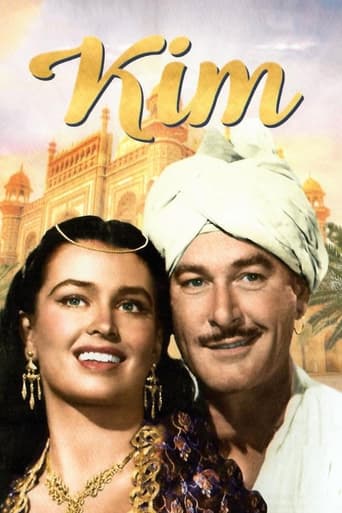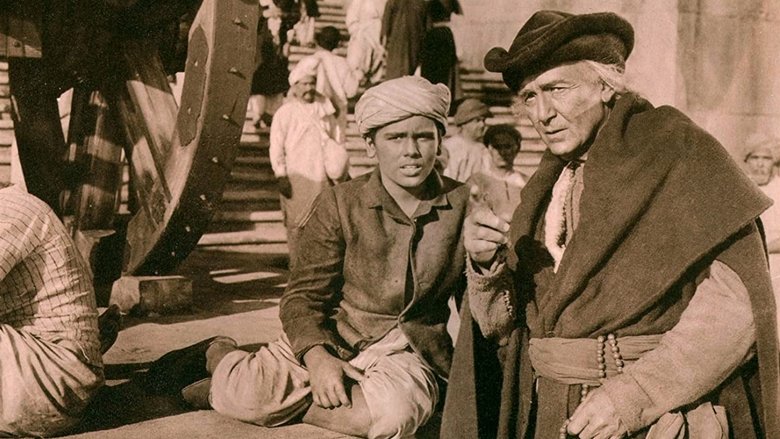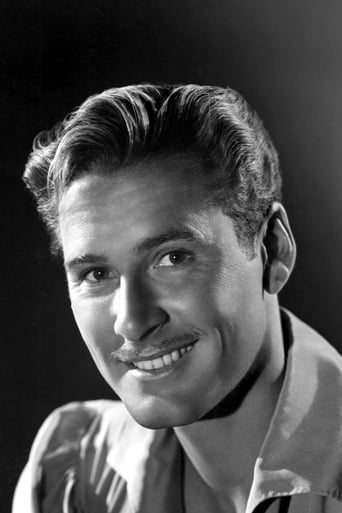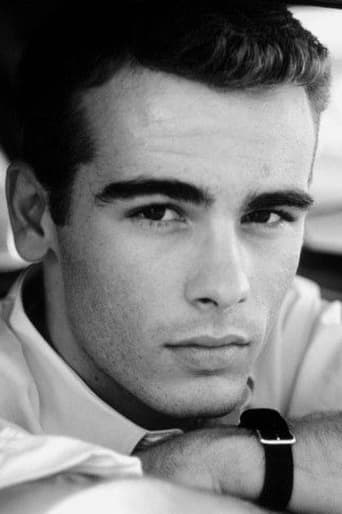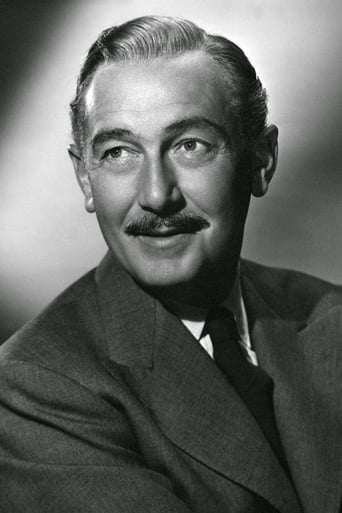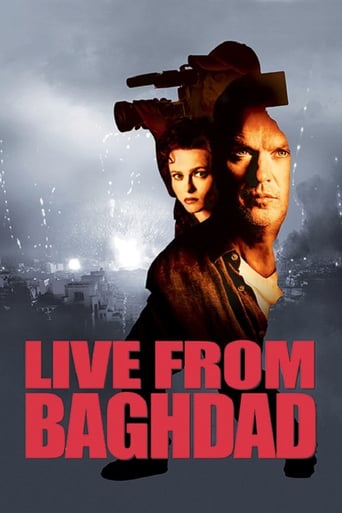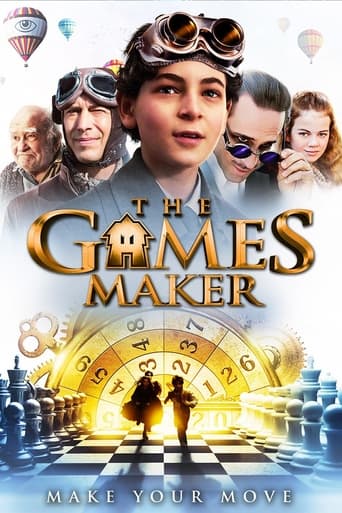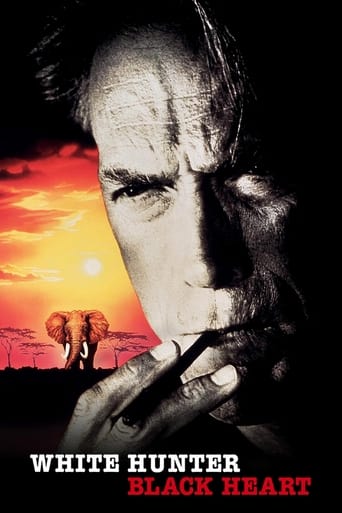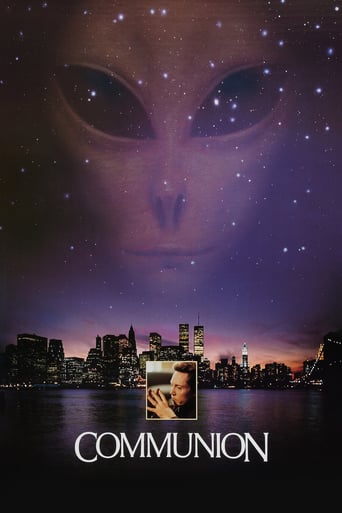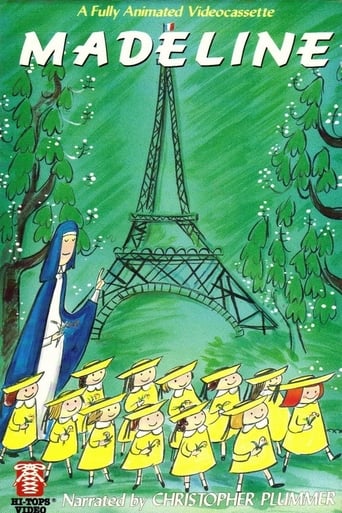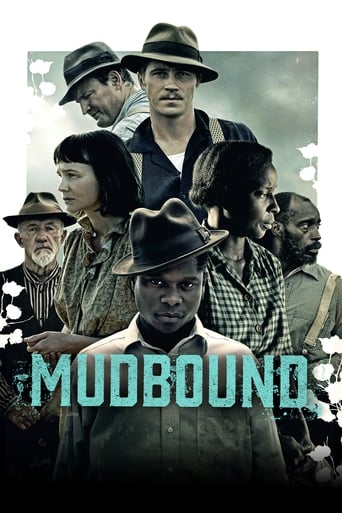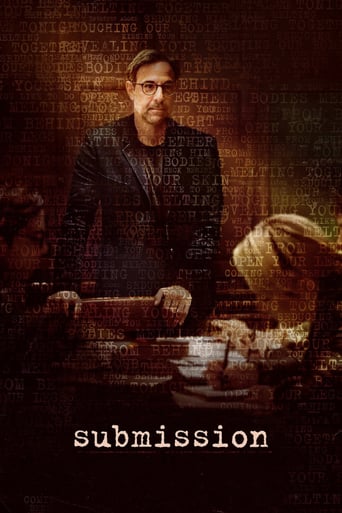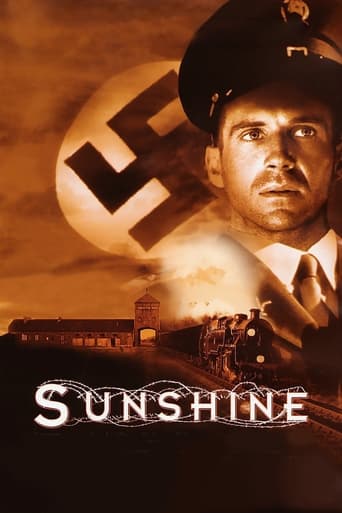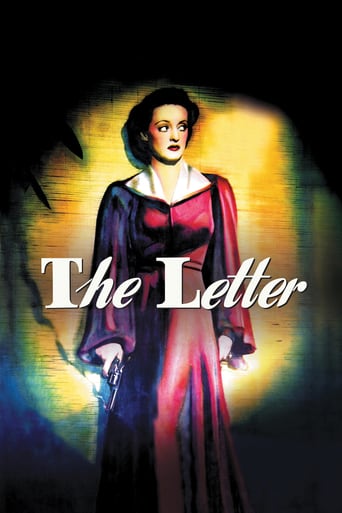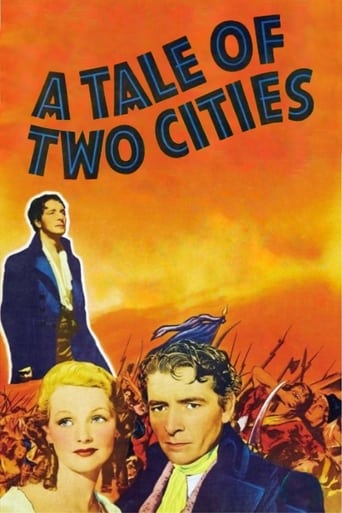Kim (1950)
During the British Raj, the orphan of a British soldier poses as a Hindu and is torn between his loyalty to a Buddhist mystic and aiding the English secret service.
Watch Trailer
Free Trial Channels
Cast


Similar titles
Reviews
Sadly Over-hyped
Very interesting film. Was caught on the premise when seeing the trailer but unsure as to what the outcome would be for the showing. As it turns out, it was a very good film.
This is a small, humorous movie in some ways, but it has a huge heart. What a nice experience.
This is ultimately a movie about the very bad things that can happen when we don't address our unease, when we just try to brush it off, whether that's to fit in or to preserve our self-image.
Based on a Rudyard Kipling novel, this film boasts a red-headed Errol Flynn as Mahbub Ali, protector of the titled boy character, played by Dean Stockwell. Directed by Victor Saville, it tells the tale of how the orphan Kim helps the British fight rebels in India. The screenplay was co-written by Helen Deutsch. The cast includes Paul Lukas, Robert Douglas, Thomas Gomez, Cecil Kellaway, and Reginald Owen.Both the main characters dress themselves as natives of India, Flynn's because he's undercover and trying to infiltrate the rebel clan; Stockwell's to avoid school. Lukas plays a holy man that befriends Kim, and then works as his apprentice. When it is discovered that Kim is really a white boy, he is sent to a private school where his free and easy ways are punished. So, he escapes and catches up with Flynn's Red Beard, who trains the youngster in the spy trade. The two of them, with help from the holy man, work to aid the British during the time their kingdom included (occupying) India.
This is a (fairly) big budget movie that could have been a lot better. It is also a poor transfer of Kipling's novel to the screen, for a variety of reasons.The raison d'être for this movie would appear to be the competition that television was posing at the time. One of the things Hollywood did to lure audiences away from their little box at home was to give them things that the TV could not provide: bright Technicolor, as in this movie, and often, colorful travelogues, either as short features between movies or as part of the movies themselves. The most famous example of this is Around the World in 80 Days, with used Verne's novel as an excuse for shooting colorful and exotic scenes around the world. This movie, if you watch the trailer, was presented as that, though it doesn't deliver the way Around the World did. A lot of the scenes are, quite obviously, either filmed on a sound stage altogether or filmed on a sound stage and then projected against film that was shot in India. Unfortunately, in both cases the result looks strangely amateurish for a big studio, big budget film. The landslide scene near the end that kills the rebel soldiers is probably the most obvious example of bad use of back projection, but there are others.The fact that the visuals were meant to be the big attraction may account for the fact that other aspects got short-changed.First, the casting.I disagree with some of the other posters on here. Dean Stockwell is generally inadequate as Kim. Far too often he just rushes through his lines as if they had been learned by heart and not understood. He's good in the last scene with the dying Lama, but too often he doesn't seem to be a real person expressing his feelings; he just sounds like a mediocre actor reciting lines.Part of the problem here, though, are those lines. The dialog is far too often stilted when it shouldn't be. In the novel, Kipling makes it very clear when his characters are speaking their native language, which they of course speak fluently, and when they are speaking a language they have learned (usually English) and over which they don't have the same command. The movie never bothered to figure out how to do this, and sometimes the characters speak in a very stilted fashion when they would clearly be speaking their native language, which makes them look foolish even when the lines are well delivered.Another problem with Stockwell that is not his fault is that the time frame of Kipling's novel has been truncated. In the book, Kim goes to school for three years, aging from a child of 15 to a young man of 18 before he gets involved in the intrigue at the end. This makes it quite believable in the novel. In the movie, Kim is still barely 15 when it all takes place - I assume so that they did not have to get another actor to play the older Kim - and it stretches credulity. To make matters worse, Hurree Chunder is killed off, unlike in the novel, so Kim is left to organize a lot of the dealings with the Russian and French spies, which really strains belief.Chunder is probably killed off so that Mahbub Ali (Errol Flynn) can play a more important role than in the novel. He, rather than Chunder, now organizes the routing of the Russians - though that episode is completely rewritten and becomes much less interesting - and not at all funny, which it is in the novel.It's also unfortunate that Chunder is killed off because Cecil Kelloway, who plays him, definitely gives the best performance in the movie. Flynn could have been great had he exuded the same charm and charisma that made him a star in the 1930s, but we seldom get to see any of that in this movie. The obvious comparison would be The Prince and the Pauper, in which Flynn also played against a boy who faced great travails. There he was at his best, as were the Mauch twins, who do a much more natural job of delivering dialog than Stockwell does.The change from the novel that I found most aggravating was the end. (Spoiler alert here.) In the novel, the Lama comes to an understanding of the goal he has been seeking, actually finds a river, and then comes to understand the nature of the river he seeks, which could be anywhere. He is quite alive at the end of the novel, and explains his entire philosophy in a very moving fashion. Kim will now have to decide, having finished school, whether he will continue to follow him or go back to the English. In the movie, the Lama has the hallucination of a river and dies, which makes him look crazy. Mahbub Ali then takes Kim to the English, deciding his future - something that Kipling's Mahbub Ali would never have done. In general, the Lama's role as a philosopher is greatly reduced in the movie, again, I suppose, because the attraction was to be the visuals and not the dialog. Decades later Steven Spielberg showed, with Star Wars, that great visuals did not mean intellectual dialog had to be sacrificed, but Victor Seville, who directed this Kim, was no Spielberg.So, for those who know the novel, this will be a real disappointment. It could have been better, with that budget, but it would have had to have been given to a better director and not approached as a Technicolor travelogue.But even for those who have not read the novel, there are too many weak points to make this anything other than sporadically interesting as a movie.
A reviewer says that Kim is half Indian. That is not the case, he is wholly British.The ending of the Kipling's novel is ambiguous - does Kim go fully "native" and live an Indian spiritual life or does he become fully a Briton or does he continue moving to and fro in both worlds? The general feeling is that Kipling infers that he permanently becomes as an Indian. He remains a disciple of the Lama and continues on immersed in a spiritual life on the lama's death. There is a great opportunity for a sequel here, both as a novel and as a film.Generally the reviewers get it right. The movie is tedious and although much of the film was shot in India it fails to capture the excitement and action of India, especially when depicting life on the road, which is one of the most intriguing elements of the book.
I've always thought that Rudyard Kipling's Kim might very well have been influenced by Charles Dickens and his creation of those street urchins in London led by that young survivor, the Artful Dodger. Certainly Kim as portrayed by Dean Stockwell in this film is every bit as resourceful in his way as the Dodger is in Oliver Twist.The Dodger had the advantage of growing up poor, but growing up in his own culture in 19th century London. Kim is short for Kimball O'Hara who's growing up on the mean streets of India. Kim's dad was a British soldier and in this film, the mother who died in childbirth is also white. Kim learned the way to survive real fast.Which makes him of great use to British Intelligence ever worried in the 19th century about Russian designs on India. Of course what they were doing in India is a question not asked in these films. This is Dean Stockwell's film, maybe the best he did as a child actor. He's appealing as all get out in Kim. Adults like Errol Flynn as the horse trader Mahbub Ali who's really a British agent, Robert Douglas as the colonel in charge of British Intelligence, and Paul Lukas as the lama on pilgrimage who befriends young Kim are clearly in support of Stockwell.This is familiar territory for Flynn back in his salad days he had just such a role in The Prince and the Pauper supporting the Mauch twins as Miles Hendon. By the way you might get confused a bit when you hear Flynn's character referred by name in Kim. They pronounce it in the film as one word, Mahbubali. Flynn was loaned to MGM from Warner Brothers for That Forsyte Woman and a second film. He was given a choice of Kim or King Solomon's Mines, each film being shot on location in India and Africa respectively. Flynn opted for the Indian story although he got to Africa later in The Roots of Heaven.Kim is still a fine boy's adventure story, should appeal to the twelve year old boy in all of us.

